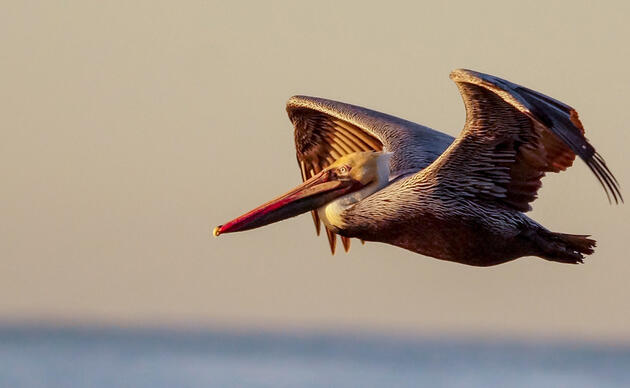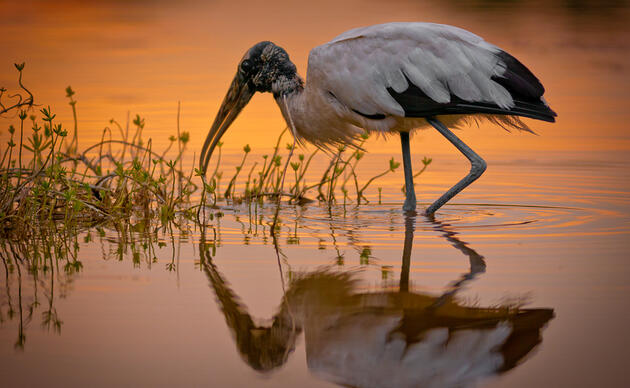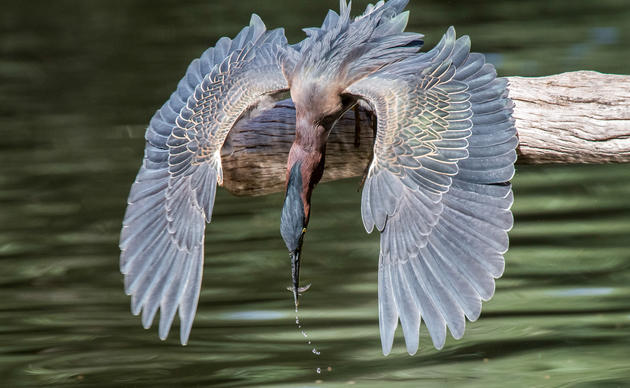CHARLESTON, SC (December 9, 2020) – In response to the passage of the Water Resources Development Act (WRDA) of 2020 by the U.S. House of Representatives on Tuesday, Audubon South Carolina Policy Director Julia Dietz issued the following statement:
“Audubon South Carolina applauds members of the House passing the Water Resources Development Act of 2020, and hopes that members of the Senate, including S.C. Sens. Lindsey Graham and Tim Scott, act quickly to pass this important legislation.
The 2020 version of this biennial water bill includes numerous provisions that will help restore the nation’s most important ecosystems and protect vital bird and wildlife habitat, including those that:
- Increase and improve the use of dredged materials for ecosystem restoration projects and projects that use nature-based solutions to reduce flood risk by ensuring environmental and social benefits are calculated into project cost assessments;
- Reduce barriers to access to federal cost sharing programs and increase access to flood risk reduction planning by waiving the non-federal study cost share for feasibility studies for socially vulnerable communities;
- Require the U.S. Army Corps of Engineers to consider the effects of sea-level rise and inland flooding in the development of federal projects, while providing the Corps with new authority to design and construct projects that use natural infrastructure to address repetitive flood losses; and, among others,
- Require the Corps to consider nature-based approaches to enhance flood and storm resilience in its feasibility studies, helping ensure that Corps-funded projects provide the most sustainable and least costly protections for communities while improving public safety.
Audubon applauds the bill’s focus on nature-based infrastructure projects to help mitigate the impacts of sea-level rise and protect vulnerable communities and habitat along South Carolina’s coast.
Provisions in 2020 WRDA will make it easier to advance projects like the restoration of Crab Bank Seabird Sanctuary, a natural infrastructure project that leverages dredged material to restore wildlife habitat and improve the resiliency of a vulnerable community.
In 2019, Audubon South Carolina partnered with the South Carolina Department of Natural Resources, Coastal Conservation League, Coastal Expeditions Foundation and others to facilitate the use of dredged material from the Charleston Harbor Post 45 Deepening Project to restore Crab Bank, an important nesting island that had eroded in recent years due to increased ship wakes, a series of severe hurricanes and sea-level rise. Thanks to these efforts, and a generous grant from the National Fish and Wildlife Foundation, this Globally Important Bird Area is set to be restored in 2021 using dredged material that would have otherwise been disposed of.
Earlier this year, Audubon South Carolina was also pleased to work with conservation partners, members of the South Carolina General Assembly and Governor Henry McMaster to pass the Disaster Relief and Resilience Act, S.259, which advances similarly pragmatic and innovative approaches to resiliency planning and disaster mitigation at the state level.
Audubon looks forward to continuing its work with policymakers, agencies and regulators at all level of government to ensure South Carolina’s resilience planning and projects realize maximum conservation and community benefits.”
###
About National Audubon Society
The National Audubon Society protects birds and the places they need, today and tomorrow, throughout the Americas using science, advocacy, education and on-the-ground conservation. Audubon’s state programs, nature centers, chapters and partners have an unparalleled wingspan that reaches millions of people each year to inform, inspire and unite diverse communities in conservation action. Since 1905, Audubon’s vision has been a world in which people and wildlife thrive. Audubon is a nonprofit conservation organization. Learn more how to help at www.audubon.org and follow us on Twitter and Instagram at @audubonsociety.
About Audubon South Carolina
Audubon South Carolina protects birds and the places they need, right here in South Carolina. We’re the state office of the National Audubon Society, which has more than one million members and a century-long track record of success. In South Carolina, we represent more than 26,000 Audubon members and supporters, eight Audubon chapters and bird club partners, two Audubon centers and 22,000 acres of land that we own and manage. Learn more about what we do and how to help at sc.audubon.org. Follow us on Facebook at @ScAudubon, Twitter at @AudubonSc.



